"Zhaozhao" generally refers to some rituals or measures performed to avoid disasters or protect family peace. In ancient times, people believed that certain places or houses would have feng shui problems, which could lead to unfavorable situations such as illness and poor financial luck. In order to resolve these adverse effects, people will take some measures to "keep their homes", such as placing charms, hanging pictures, burning incense and lighting lamps, etc. In traditional Chinese architecture, the images of these mythical beasts are often carved or painted on the lintels, column heads, beam heads and other positions of the building to achieve the function of holding down the house. In addition, you can also use some home decorations or wall charts and other items in the home to add to the home decoration and also play a role in ensuring peace. The mythical beast that controls the house is an image of a mythical beast that is used to ward off evil spirits, avoid disasters, and protect the safety of the family. Common mythical beasts that dominate the house include dragon, phoenix, unicorn, white tiger, green dragon, etc. These mythical beasts are believed to have certain spiritual powers, can protect the residence from evil forces, and bring good luck and peace to the family.
Then do you know which mythical beast is the best to ward off evil spirits in the house? This article brings you an inventory of the top ten mythical beasts that guard homes in ancient China, such as unicorn, lion, brave, phoenix, dragon, turtle, elephant, golden toad, etc. Let’s learn about them together.
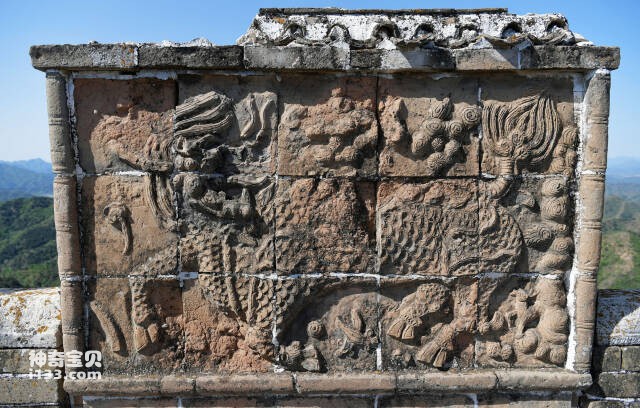
1. Kirin
Qilin is one of the five auspicious beasts in ancient China and is known as the top ten mythical beasts that control the house. People believe that the appearance of Qilin means auspiciousness. In traditional Chinese folk etiquette, people create various ornaments and ornaments for wearing and home decoration, which symbolize blessing and peace. In ancient times, unicorn stone carvings or reliefs were common in shops, temples and government offices, which heralded the best wishes for turning misfortunes into good fortune and bringing good fortune in times of adversity. With the continuous development of society, many ordinary families and businesses now also place unicorns in their homes or shops in order to achieve auspicious effects such as warding off evil spirits and attracting wealth. Therefore, it can be said that Qilin is one of the most popular house mythical beasts at present.
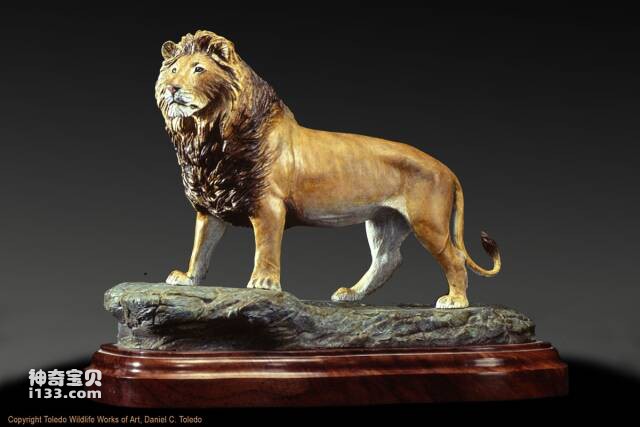
2. Lion
The lion is known as the "King of Beasts" and is one of the traditional Chinese mythical beasts that control the house. During the Eastern Han Dynasty, the Parthian King of the Western Regions presented the first lion to China. From then on, lions began to appear in Chinese culture. Since then, people have begun to carve lions into stone or bronze statues and place them in front of their doors to ward off evil spirits. Bronze lions are considered to be treasures that can control evil spirits and help bring prosperity to the house. During the production process, pure brass is usually used for precision casting. Its main function is to resolve evil spirits and disasters, and it can also strengthen the official authority or the yang energy of the owner of the house. Stone lions can be seen at the entrances of many buildings around us, including palaces, temples, pagodas, bridges, mansions, gardens and mausoleums. Stone lions are not only decorative, but also capable of dispelling various forms of evil spirits and bringing good luck and peace to families and businesses. Therefore, the status of the lion as the sacred animal that controls the house is very important in Chinese culture.
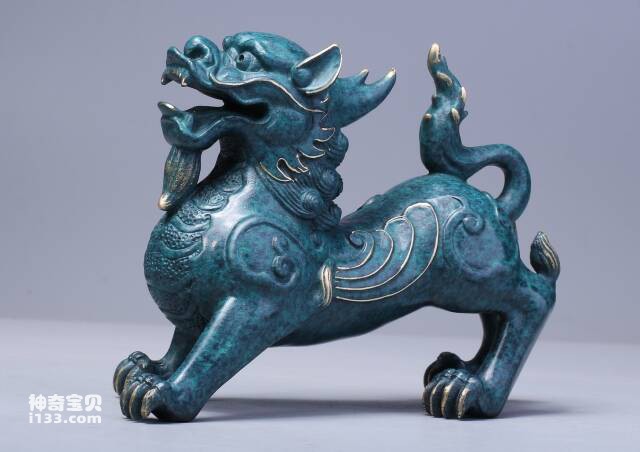
3. Pixiu
In our country's traditional culture, keeping the house in check and warding off evil spirits has always been a very important topic. In various legends and stories, Pixiu is considered a magical beast that can control the house. Pixiu is an auspicious beast in ancient legends. It is said to be able to turn disaster into good fortune and bless the family with peace and prosperity. Carving Pixiu into a stone statue and placing it at home can bring wealth and blessings to yourself and your family, and it also has the effect of calming down evil spirits in the house. From ancient times to the present, emperors and common people have the habit of using Pixiu to ward off evil spirits and control their homes. Legend has it that Pixiu can not only bring luck and ward off evil spirits, but can also transform Tai Sui and promote marriage. Therefore, many people regard it as one of the most effective mythical beasts to control the house. In ancient times, Pixiu can be seen in palaces, government offices, shops, private courtyards, etc., which shows that it plays a very important role in Chinese culture. To sum up, Pixiu is indeed a mythical animal that is very suitable to be used as a house guard to ward off evil spirits, and has a wide range of beliefs and applications.
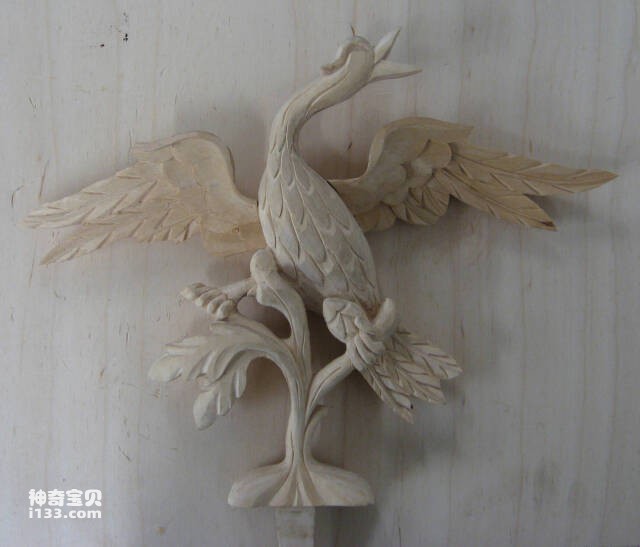
4. Phoenix
The phoenix is regarded as one of the mythical beasts that protects the house and wards off evil spirits. In the "Book of Rites, Li Yun Ninth", Lin, phoenix, turtle, and dragon are called the "four spirits". These mythical beasts are very common in ancient buildings, utensils, and paintings. Feng refers to the phoenix, which is the totem used by ancient nobles such as Yu, Shun, Di Ku, and Qi. According to records in ancient books, the phoenix is a beautiful bird, known as the king of birds for its singing and appearance. People believe that the Phoenix can bring auspiciousness to the world and has special spirituality. It only lives on plane trees, eats only bamboo and ripe fruits, and only drinks clear spring water. Therefore, the phoenix was widely used in ancient times to symbolize the power and glory of the queen and the royal family.
In traditional Chinese culture, the phoenix is also regarded as a mythical animal that controls the house and wards off evil spirits. Carving or painting a phoenix on a door leaf is said to protect the home from malicious intruders, while also attracting good luck and wealth. The image of the phoenix can often be seen in many palaces, mansions and shops in ancient times. To sum up, the phoenix, as a mythical animal, plays an important role in Chinese culture. It is not only a symbol of royal glory, but also a patron saint of family peace.
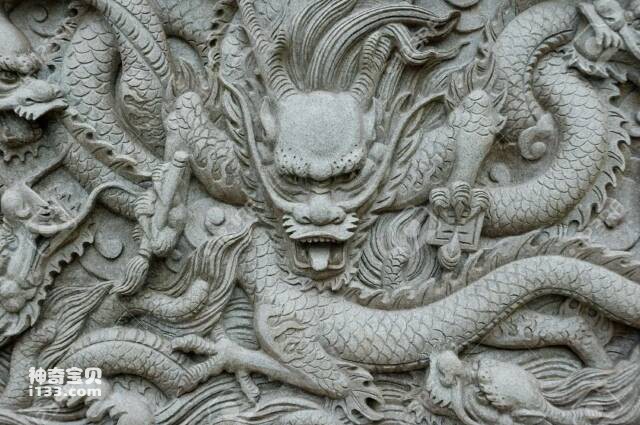
5. Dragon
There are many types of mythical beasts that dominate the house, the most famous of which is the dragon. The dragon is a mysterious animal that is regarded as a symbol of ferocity, power and sacredness in Chinese culture. Dragons can appear and become invisible, can change into various forms, and are not limited in size. It is said that the dragon can control the wind, rain and weather, and is an omnipotent existence. In addition, the dragon is also regarded as a symbol of the emperor in the feudal era, representing nobility, martial arts, strength, excellence and wealth. It is considered the most noble mascot in the eyes of the Chinese.
Dragons can not only bless people's descendants with prosperity, but also have the ability to predict good and bad luck. Therefore, in traditional Chinese culture, people often use dragons to ward off disasters and avoid evil, in order to protect the safety and development of their families and careers. To sum up, the dragon, as one of the famous mythical beasts that control the house in traditional Chinese culture, plays a very important role. Not only is it a powerful symbol, it is also a patron saint in all aspects of life, bringing blessings and protection to people.
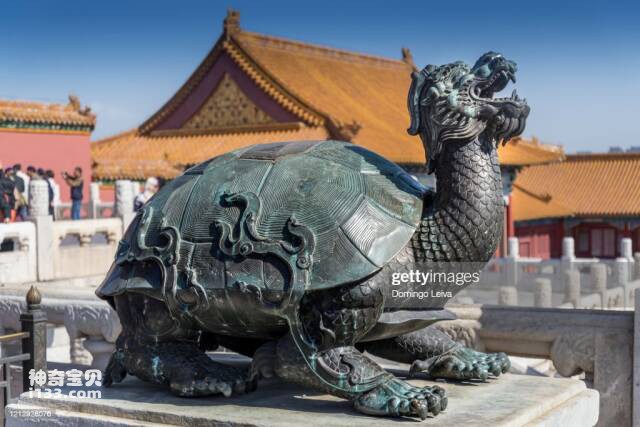
6. Turtle
Turtles are also one of the top ten house animals. The turtle is regarded as a descendant of Xuanwu, symbolizing endurance, load-bearing, longevity and authority, and is considered one of the most auspicious mascots. The back and tail of the turtle are believed to have the effect of controlling evil and relieving misfortune, while the dragon head symbolizes blessing. It is said that carving the words "hundred years of life" on a turtle can attract wealth and good health, and can also help to neutralize three evil spirits.
The dragon turtle, in particular, is one of the most common mascots in Feng Shui. It is believed to have the effect of settling down the home, holding the house in check, warding off evil spirits, and ensuring peace. People believe that finding the direction of the three evil spirits of the year and aligning the dragon turtle's tail with this direction can turn evil spirits into a house, attract good fortune, and resolve official disputes or villainous matters. To sum up, the turtle, as an ancient mascot, plays an important role in Chinese culture. It not only has the ability to protect the safety of the home, but also attracts good luck and wealth. It is one of the mythical beasts that is widely used to control the house and ward off evil spirits.
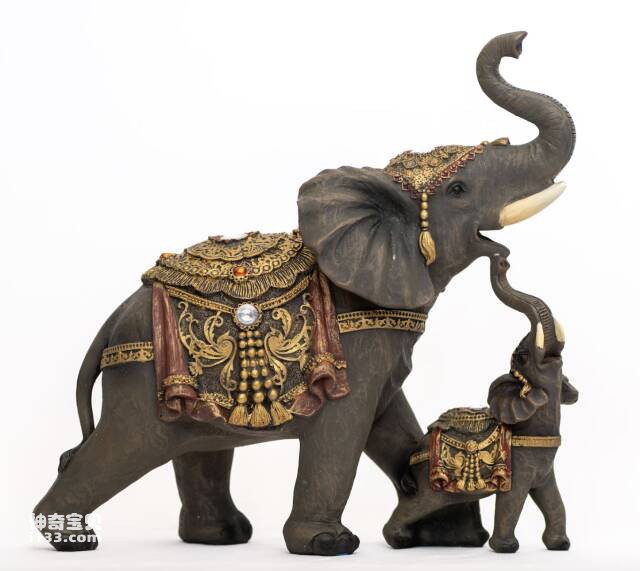
7. Elephant
Elephants are also widely regarded as one of the animals that can control homes. Xiang is a homophonic word for "xiang", so Xiang is considered a symbol of good luck. Elephants are also considered to be a sacred animal that looks after homes and homes. It can help people drive away evil spirits and protect families from malicious intrusions, thereby making the home more peaceful and stable. In ancient times, many family disputes, disharmony and poor fortune were attributed to the invasion of evil spirits, so people hoped to drive them away and ensure the safety and health of the family by carving stone sculptures like Elephants-Are-Endangered.html">elephants.
In addition, people also associate the behavior of the elephant's long trunk to absorb water with attracting wealth, so the elephant is also regarded as one of the symbols of wealth. People believe that placing elephant statues can bring good luck and wealth to themselves and their families. To sum up, elephants, as one of the common mythical animals that control houses and ward off evil spirits in traditional Chinese culture, play a very important role. Not only is it a powerful symbol, it is also a mythical beast that guards the home and the courtyard, protecting the safety and health of the family while also attracting good luck and wealth.
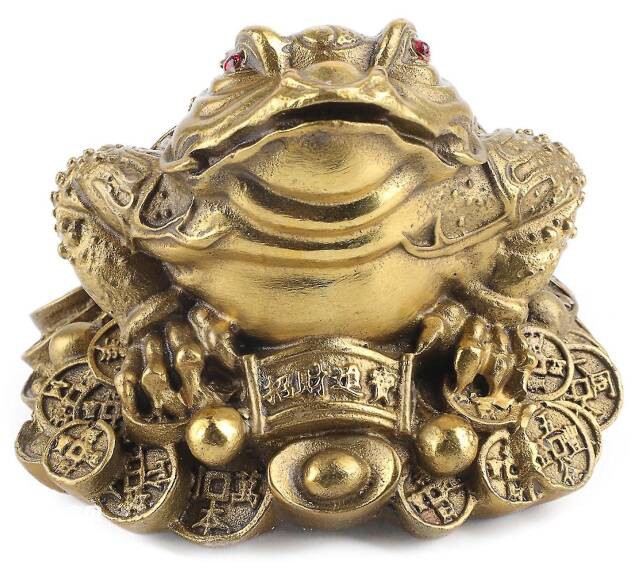
8. Golden Toad
The golden toad is one of the famous Feng Shui auspicious animals and has always been regarded as a symbol of wealth and wealth. In addition, the golden toad is also widely used as a symbol to ward off evil spirits in the house, protect the safety of the family, and is also a symbol of longevity and health. The golden toad is considered an auspicious animal with a long life, representing good luck, peace, health and longevity. The image of the golden toad is usually that of stepping on ingots with its feet and holding coins in its mouth. It has a plump body and is rich and self-sufficient. Since this image means "vomiting treasure to make money and making money", the golden toad is also widely used to symbolize wealth and good luck.
Among the people, there is a saying "Whoever gets the golden toad will be rich", which illustrates people's widespread belief and respect for the golden toad. Because the golden toad not only has the ability to attract wealth and protect family safety, but also can bring longevity and health, it is loved and respected by the majority of people. To sum up, the golden toad is one of the very important Feng Shui auspicious animals in traditional Chinese culture. It has various symbolic meanings such as wealth, wealth, home protection, warding off evil spirits, longevity and health, etc. Not only is it a powerful symbol, it can also bring good luck and well-being to people.
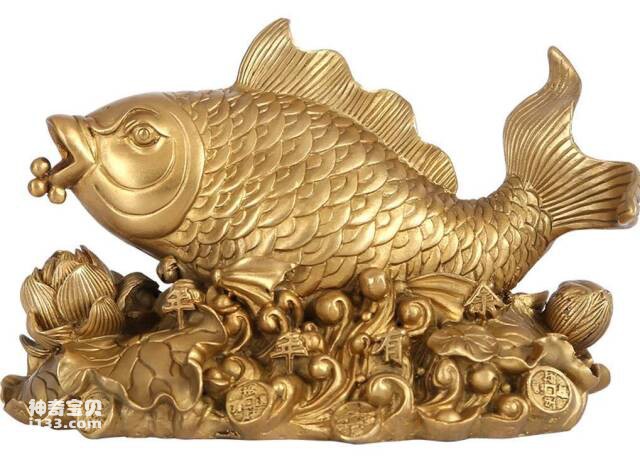
9. Carp
Carp are one of the most common house animals. Because "fish" and "yu" have the same pronunciation, it is regarded as a mascot in traditional customs, symbolizing wealth, luck and good luck. At the same time, fish also corresponds to the green dragon, which is a creature of extremely yin nature. It can transform yin into yang and yang into yin. People believe that by using carp to ward off evil spirits in the house, they can accumulate blessings, ward off evil spirits, gather wealth, and make the owner prosperous, making the house more peaceful and stable. Place the carp in a large evil position or a key position and let it breathe in Yuan Yin, so as to accumulate blessings and wealth, suppress disasters and turn evil spirits away.
However, it should be noted that if you want to turn bad luck into good luck, you must place the fish tank in the bad position. If the fish tank is placed in an auspicious position, it will lead to loss of wealth instead of prosperity. Therefore, when using carp to ward off evil spirits in your home, you need to choose the right location and manage it well. To sum up, carp, as one of the famous mythical animals that can control the house and ward off evil spirits in traditional Chinese culture, plays a very important role. Not only is it a powerful symbol, it can also bring good luck and well-being to people. However, it should be noted that when using carp for Feng Shui house control, you must choose the correct location to maximize its effect.
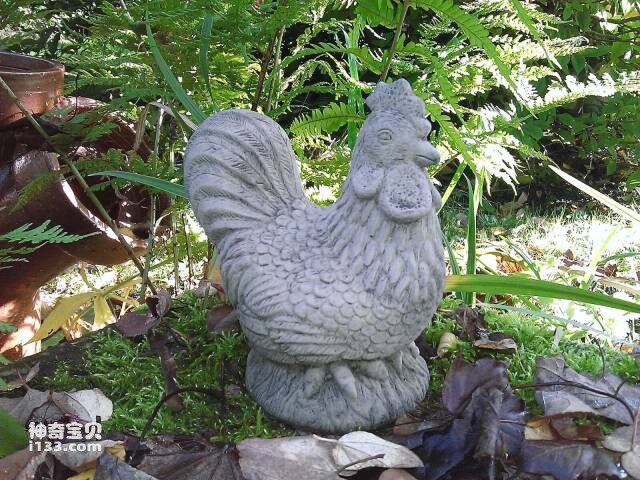
10. Rooster
In Chinese folk belief, the rooster is also an animal often used to guard the house and ward off evil spirits. First of all, the rooster is considered an auspicious object such as the red bird, and has the effect of expelling yin and guiding yang in folk beliefs. The ancient document "Taiping Yulan" mentioned that when the sun rises, the rooster crows because "the rooster crows when the sun rises, which is a sense of analogy." The ancients called the chicken "Yang Jing", that is, the essence of the sun, and evil demons and monsters are all dark and ugly things that are afraid of the sun, so they naturally avoid the righteousness of the chicken.
In addition, "chicken" and "auspicious" are homophonic, so in many folk customs, chicken is given auspicious meaning. Based on the tradition of using chickens to ward off evil spirits, the auspicious meaning represented by chickens is further strengthened. To sum up, the rooster, as one of the objects that ward off evil spirits in traditional Chinese culture, has strong auspiciousness, exorcism and auspicious symbolic meanings. It can not only drive away yin and guide yang, drive away evil spirits, but also bring good luck and auspiciousness. Therefore, chickens have always been given a very important position in Chinese folk beliefs.
The ranking of the top ten mythical beasts that guard houses in ancient China is mainly based on the popularity of the mythical beasts/traditional folklore/folklore, and comprehensively refers to relevant rankings/lists on the Internet for recommendations. If you have any questions, please feel free to comment/criticize at the end.
animal tags:
We created this article in conjunction with AI technology, then made sure it was fact-checked and edited by a Animals Top editor.